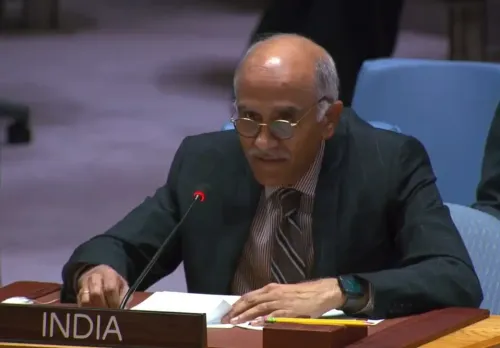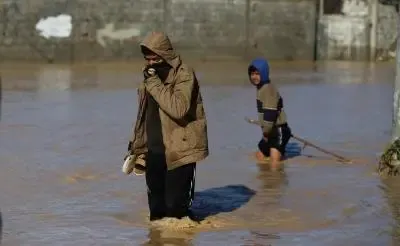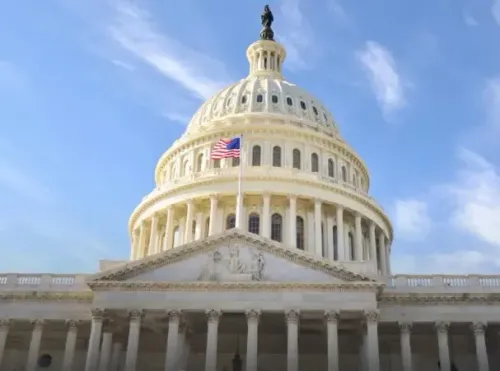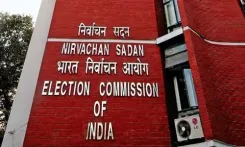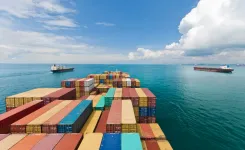Zelensky Willing to Finalize Suspended Mineral Agreement with US as European Leaders Unite in a 'Coalition of the Willing'
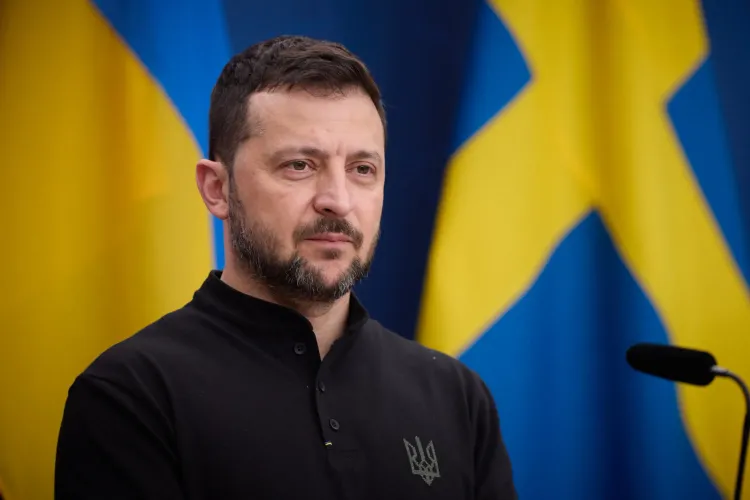
Synopsis
Key Takeaways
- Zelensky expresses readiness to finalize mineral deal.
- Coalition of the Willing supports Ukraine at summit.
- US's commitment to agreement remains uncertain.
- Peace deal required for mineral agreement to proceed.
- European leaders advocate for greater defense spending.
London, March 3 (NationPress) Ukraine’s President Volodymyr Zelensky has expressed his willingness to finalize the halted mineral agreement with the United States, following an announcement by British Prime Minister Keir Starmer about a 'Coalition of the Willing' aimed at supporting him during a summit with European leaders.
"If we reach an agreement to sign the minerals deal, we are prepared to proceed," he stated on Sunday after the summit. "The proposal currently available will be signed if all involved parties are in agreement," he informed reporters.
However, uncertainty remains regarding the US's willingness to move forward with the agreement that had been negotiated and was ready for signing.
Treasury Secretary Scott Bessent indicated that the agreement could be rendered irrelevant if Zelensky desires the conflict to persist.
Zelensky has emphasized his desire for an end to Russia's aggression and security assurances from the US as prerequisites.
Bessent remarked that a peace agreement is essential for the mineral deal to be viable.
Meanwhile, France and Britain are seeking to energize the peace initiatives that US President Donald Trump has been leading, despite Zelensky's skepticism.
Starmer noted that he and France’s President Emmanuel Macron are working on a peace strategy with Zelensky, which will subsequently be discussed with Trump.
“We have now agreed that the UK, alongside France and potentially a few others, will collaborate with Ukraine on a plan to halt the conflict, and then we will present that plan to the United States,” he told the BBC.
In outlining the plan, Macron suggested it might commence with a month-long ceasefire, which would serve as a precursor to a comprehensive peace agreement.
In an interview with Le Figaro, he mentioned that the initial ceasefire would encompass air, sea, and energy infrastructure, which are easier to monitor, excluding ground combat that is more challenging to oversee.
He stated, “The key is how we utilize this period to establish a feasible ceasefire, with negotiations spanning several weeks, followed by troop deployment once peace is achieved.”
Britain and France have proposed to deploy troops in Ukraine as part of a peacekeeping mission to ensure that hostilities do not resume.
Starmer said, “We concur with Trump on the immediate need for lasting peace. Now we need to act together,” but he emphasized that “Europe must bear the brunt of the effort.”
Eighteen leaders from Europe and Canada were present at the summit, which, as Starmer pointed out, occurred “at a pivotal moment in history.”
During the summit, leaders committed to taking greater responsibility for Europe’s security amidst uncertainties regarding ongoing support from the US under Trump.
NATO Secretary General Mark Rutte stated that Europe is prepared to enhance its assistance to Ukraine as it continues to confront Russia.
In his interview, Macron asserted that European nations should increase their defense expenditures to between 3 and 3.5 percent of their GDP, exceeding NATO's 2 percent target.
Trump has called for European nations to raise their defense budgets.
Macron highlighted that Russia allocates 10 percent of its GDP for defense.
On Friday, Zelensky, who arrived to finalize the minerals agreement, had a heated exchange with Trump and Vice President JD Vance, who accused him of being insufficiently appreciative of the US and disrespectful to the president.
When Zelensky attempted to express his concerns about the peace negotiations with Moscow that Trump was conducting without Ukraine, and stated that Russia’s President could not be trusted, the Oval Office meeting, conducted before live cameras, concluded without the agreement being signed. Trump later informed reporters that Zelensky was uninterested in peace.
According to the mineral agreement, a jointly managed investment fund by the US and Ukraine would be established, with 50 percent of future revenues from Ukraine’s state-owned mineral resources, oil, and gas allocated to it. Some of the fund's resources would be invested back into Ukraine.
Reports suggested that Trump requested Ukraine to commit $500 billion in mineral wealth to the US, a demand that was ultimately retracted.
Zelensky’s reception in Britain was markedly different from the hostility he experienced in Washington. He was warmly welcomed by Starmer and later met with King Charles.
At the summit, European leaders rallied around him, demonstrating their support clearly.


